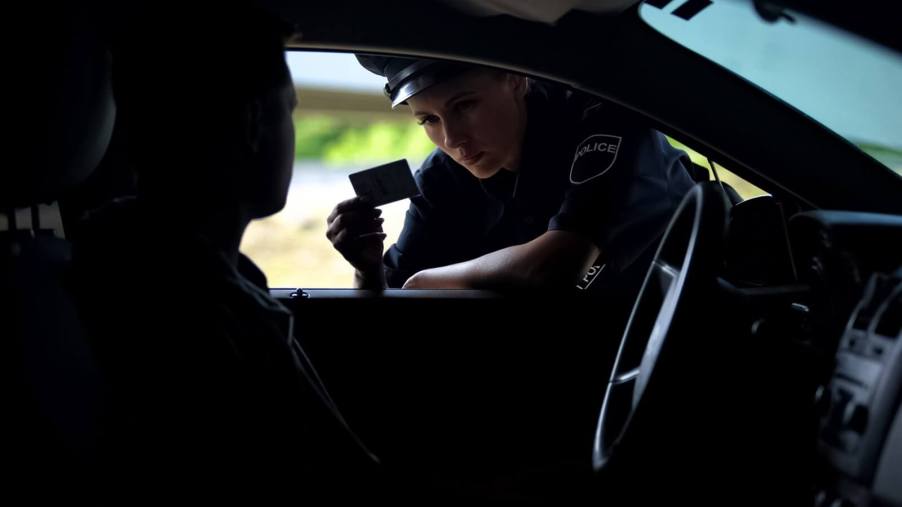
5 Things a Police Officer Can Legally Order You To Do at a Traffic Stop
American law enforcement officers (LEOs) pull over tens of thousands of drivers every day. It’s part of the landscape of our roads, avenues, and highways. As such, there are certain things a police officer is allowed to require you to do at a routine traffic stop, like performing a field sobriety test.
A police officer is well within their right to see your license, make you step out of your vehicle, and even issue a field sobriety test
Depending on the state, a police officer can legally command a driver to do the following.
- Produce a license and registration
- Produce proof of insurance
- Get out of the car
- Perform a field sobriety test
- Search your person
Now, I live in Louisville, Kentucky. If you aren’t familiar with Louisville, the city made national headlines for multiple police officers’ conduct in the death of Louisville resident Breonna Taylor. As such, Louisville cops are under much scrutiny for their actions on and off the streets. Consequently, the Courier Journal has a guide to what LMPD officers can and can’t demand during a traffic stop.
For starters, and all too predictably so, a police officer will likely introduce themselves and explain why they pulled you over. However, they will likely require you to disclose the location of your license, registration, and proof of insurance before displaying them. Moreover, it’s more often than not policy that a law enforcement officer will order you to produce all three documents at a traffic stop.
Furthermore, a police officer might request that you exit the car. While that might seem drastic, it’s a safety concern and well within the officer’s rights. Additionally, an LEO can require that a driver conduct a field sobriety test in the event that they suspect a driver’s intoxication– that, or if a driver refuses a breathalyzer test. Of course, you can refuse. Just expect to end up in handcuffs.
Unfortunately, some police officers are allowed to search or “frisk” a motorist when outside their vehicle without probable cause or a warrant, per the Fourth Amendment of the U.S. Constitution. As such, drivers should make sure they’re not carrying anything that would land them in hot water with the authorities. Of course, if you suspect law enforcement of violating your rights, contact a lawyer or the ACLU immediately.
Source: Courier Journal



